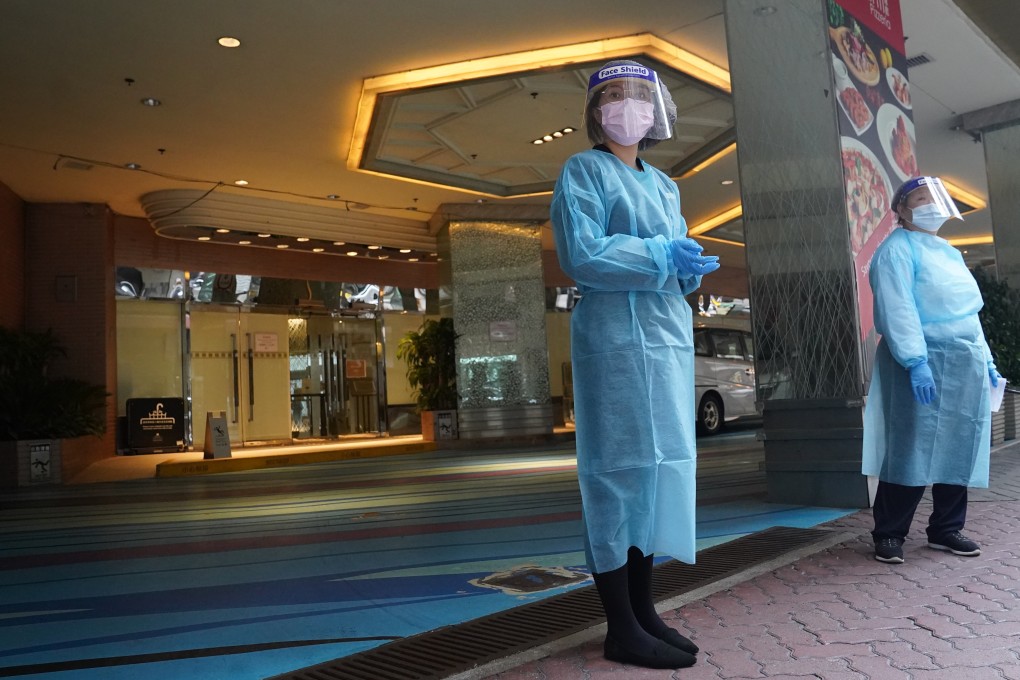Coronavirus: authorities across border ‘have not insisted Hong Kong adopt mainland China-style system for contact tracing’
- They have so far refrained from spelling out specific preconditions of any kind out of consideration for constraints on local officials, source says
- New rules at airport will mandate testing every three days for vaccinated workers who handle cargo, deal with passengers or drive travellers to isolation

They refrained out of respect for the constraints city officials might face, according to a Hong Kong source familiar with recent meetings of experts from both sides on measures that would pave the way for restoring travel links interrupted by the pandemic.
Rather than specific measures, city officials were given more general advice to improve and strengthen their epidemic control work, he said, adding that the Hong Kong technology chief’s suggestion over the weekend about a voluntary contact-tracing system was only a first step in figuring out an acceptable way forward.
“What Alfred Sit Wing-hang said on Sunday was what the government can think of so far. He did not say that these were the best [ideas] or the best that we can do,” the insider said.

06:05
As more countries ditch ‘zero-Covid’ policy, why is China opting to ‘wait and see’?
Still, the source added that it was technically possible for Hong Kong to adopt the mainland’s health code, or a similar system that required mandatory tracing, but such an app would not automatically ease all of the mainland’s concerns.
“First, the mainland does not just rely on an app to trace contacts. It also relies on big data, surveillance systems and SIM cards that are registered with residents’ full names. But we don’t have these in Hong Kong,” he said.